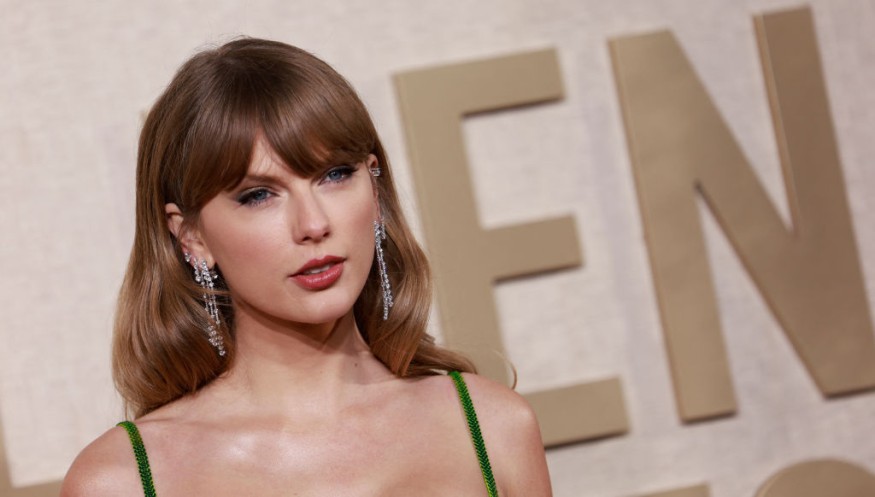Taylor Swift Fans Slam New York Times Following 'Inappropriate, Invasive and Untrue' Op-Ed Against the Pop Superstar

A contentious New York Times op-ed, which speculated on Taylor Swift's sexual orientation, has stirred criticism from the pop superstar's associates and fans alike.
"Because of her massive success, at this moment, there is a Taylor-shaped hole in people's ethics," a person close to the situation, who requested anonymity to speak candidly, told CNN.
The 5,000-word New York Times Taylor Swift op-ed, titled "Look What We Made Taylor Swift Do," written by editor Anna Marks in The Times' opinion section, suggests that Swift may be a closeted queer person.
The piece has prompted concerns about the ethics of such speculative journalism.
"There seems to be no boundary some journalists won't cross when writing about Taylor, regardless of how invasive, untrue, and inappropriate it is - all under the protective veil of an 'opinion piece,'" the person added.
The unnamed source highlighted a perceived double standard in allowing such an op-ed about Swift to be published, questioning its morality.
Backlash and Boycotts Against The New York Times
Fans of the Grammy winner are taking their discontent a step further, with some going as far as to boycott The New York Times, per the Daily Mail.
"Just canceled my subscription. This article is sexist and grossly inappropriate," an X user said.
Users on social media platforms have criticized the article as sexist and grossly inappropriate, with some canceling their subscriptions in protest.
The backlash emphasizes the discontent surrounding the speculative nature of the piece, questioning the journalistic integrity of discussing a public figure's sexuality without concrete evidence.
The article in question explores Swift's body of work, examining LGBTQ references, both overt and perceived, in her songs and performances.
Marks suggests that Taylor Swift may have been signaling her identification with the queer community through various means, including lyrics and visual elements in her appearances.
Examples cited by Marks include Swift's choice of hair colors resembling the bisexual pride flag, rainbow dresses, and references in her lyrics that allude to Sapphic love.
The author also interprets what she calls "Easter eggs" in the lyrics, pointing to instances like the mention of 'glass closets' in the song "Willow" and nods to lesbian artist Louie Fuller during the Reputation tour.
Marks argues that when considered collectively, these elements suggest Swift's alignment with the queer community.
However, critics argue that such interpretations rely heavily on conjecture and may cross ethical boundaries.
Country Singer Chely Wright's Response
Country singer Chely Wright, who publicly came out as gay in 2010, expressed her dissatisfaction with the New York Times Taylor Swift op-ed, The Hollywood Reporter noted.
Agree w/you, @ChrisWillman.
— Chely Wright (@chelywright) January 7, 2024
I was mentioned in the piece, so I’ll weigh in. I think it was awful of @nytimes to publish.
Triggering for me to read— not because the writer mentioned my nearly ending my life— but seeing a public person’s sexuality being discussed is upsetting. https://t.co/34uBwHwHaY
The op-ed references Wright's memoir and her personal challenges around coming out. Wright criticized The New York Times for publishing the piece, calling it "triggering" and "awful."
"I was mentioned in the piece, so I'll weigh in. I think it was awful of @nytimes to publish," commented Wright in a post on X about the article on Sunday.
She expressed her distress over the publication, not because the writer mentioned her personal struggle with suicidal thoughts, but due to the discomfort of seeing a public figure's sexuality being discussed in such a manner.
The controversial op-ed, written by the same author who examined queerbaiting accusations around Harry Styles in 2022, brings attention to the challenges faced by LGBTQ country singers, referencing Wright's struggles in the industry.
The article explores the cultural shifts from the past to the present but has drawn criticism for its speculative nature and the emotional toll it may take on individuals like Chely Wright.
Meanwhile, Marks, seemingly anticipating potential criticism of the New York Times Taylor Swift op-ed's speculative assertions, addressed it in advance by acknowledging that discussing a star's possible queerness before a formal declaration might be perceived as salacious and gossip-driven.
She expressed reservations about such discussions but argued that the stories that capture public attention influence cultural perceptions of what artists can say.
Marks emphasized that recognizing the possibility of queerness while being mindful of the distinction between possibility and certainty helps maintain an open and inclusive cultural conversation.
In response to the criticism from Taylor Swift's associates, a spokesperson for The New York Times declined to provide a direct comment and referred to Marks' statements within the published essay.
READ MORE : Michael Bolton Reveals He has Brain Tumor
This article is owned by Latin Post.
Written by: Bert Hoover
WATCH: NYT slammed for Taylor Swift op-ed speculating on her sexuality - From CNN
Subscribe to Latin Post!
Sign up for our free newsletter for the Latest coverage!

















